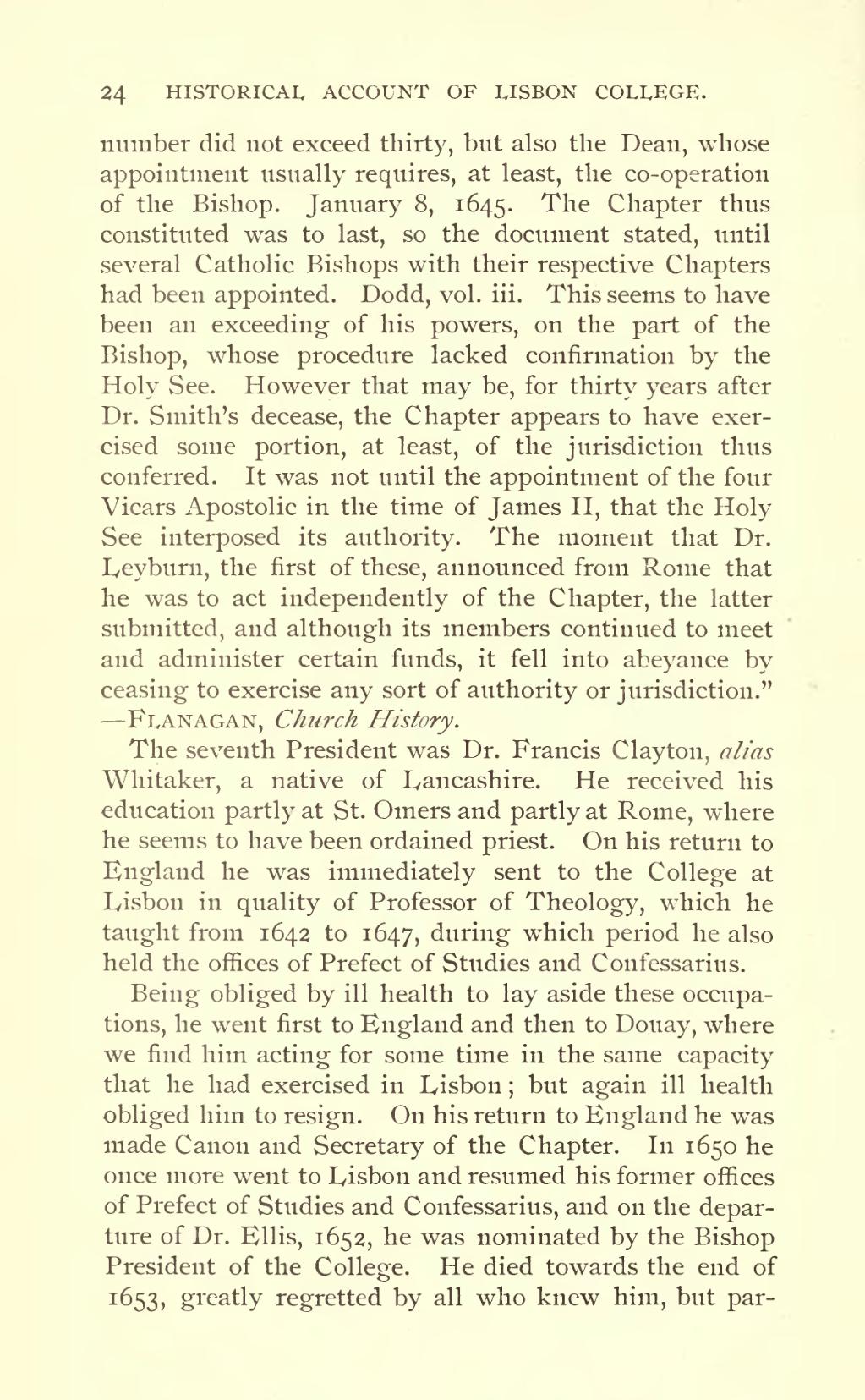number did not exceed thirty, but also the Dean, whose appointment usually requires, at least, the co-operation of the Bishop. January 8, 1645. The Chapter thus constituted was to last, so the document stated, until several Catholic Bishops with their respective Chapters had been appointed. Dodd, vol. iii. This seems to have been an exceeding of his powers, on the part of the Bishop, whose procedure lacked confirmation by the Holy See. However that may be, for thirty years after Dr. Smith's decease, the Chapter appears to have exercised some portion, at least, of the jurisdiction thus conferred. It was not until the appointment of the four Vicars Apostolic in the time of James II, that the Holy See interposed its authority. The moment that Dr. Leyburn, the first of these, announced from Rome that he was to act independently of the Chapter, the latter submitted, and although its members continued to meet and administer certain funds, it fell into abeyance by ceasing to exercise any sort of authority or jurisdiction." Flanagan, Church History.
The seventh President was Dr. Francis Clayton, alias Whitaker, a native of Lancashire. He received his education partly at St. Omers and partly at Rome, where he seems to have been ordained priest. On his return to England he was immediately sent to the College at Lisbon in quality of Professor of Theology, which he taught from 1642 to 1647, during which period he also held the offices of Prefect of Studies and Confessarius.
Being obliged by ill health to lay aside these occupations, he went first to England and then to Douay, where we find him acting for some time in the same capacity that he had exercised in Lisbon; but again ill health obliged him to resign. On his return to England he was made Canon and Secretary of the Chapter. In 1650 he once more went to Lisbon and resumed his former offices of Prefect of Studies and Confessarius, and on the departure of Dr. Ellis, 1652, he was nominated by the Bishop President of the College. He died towards the end of 1653, greatly regretted by all who knew him, but par-
